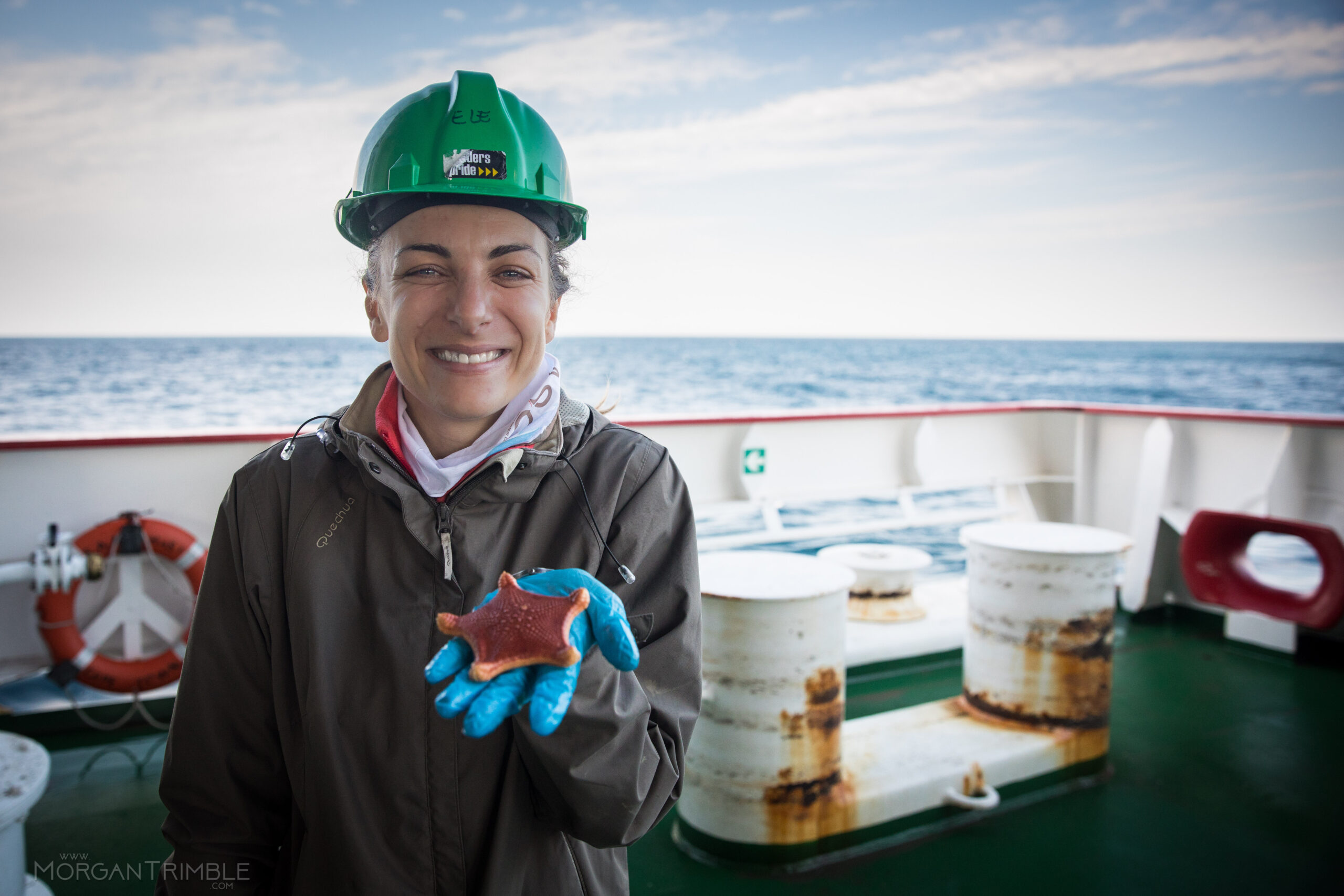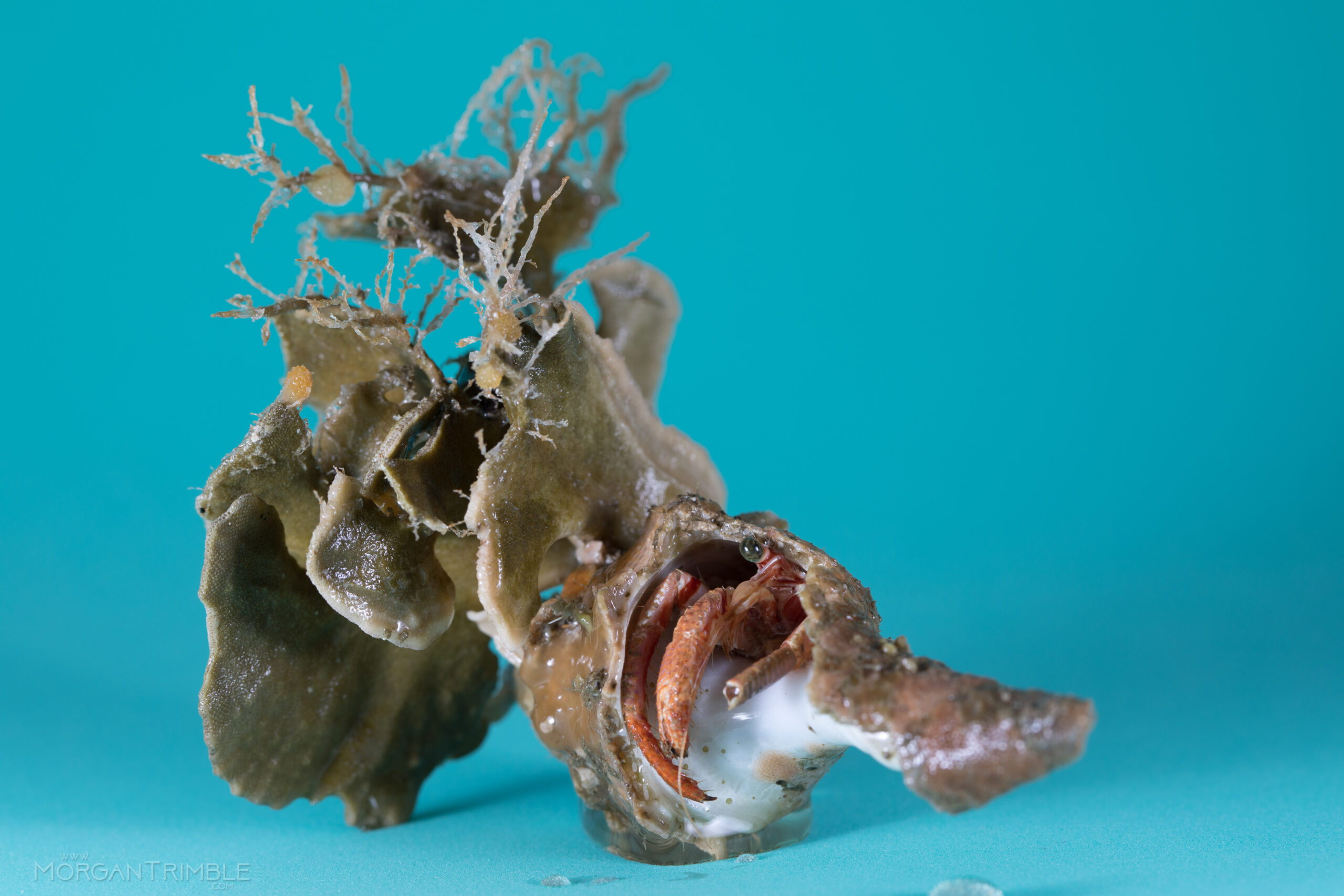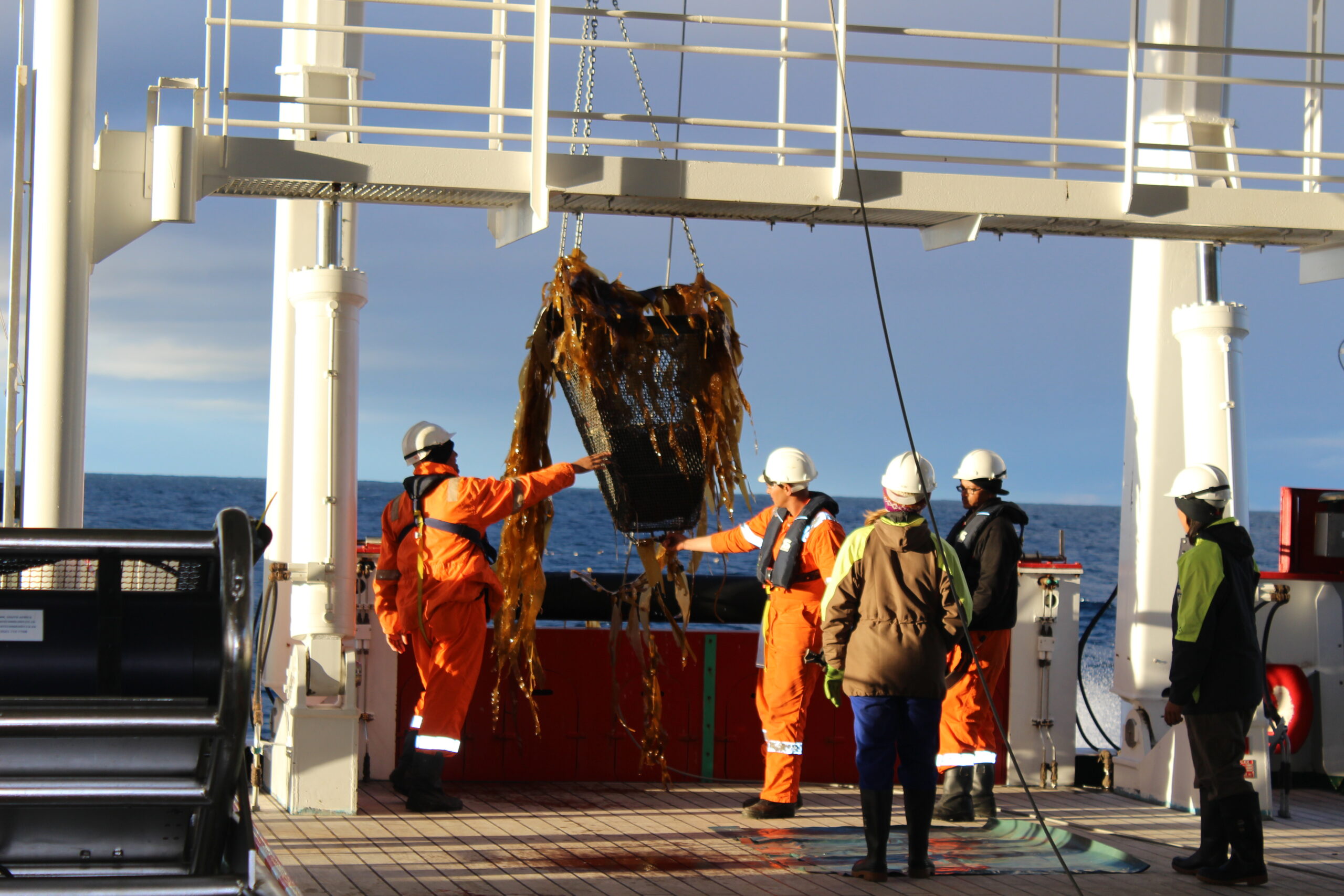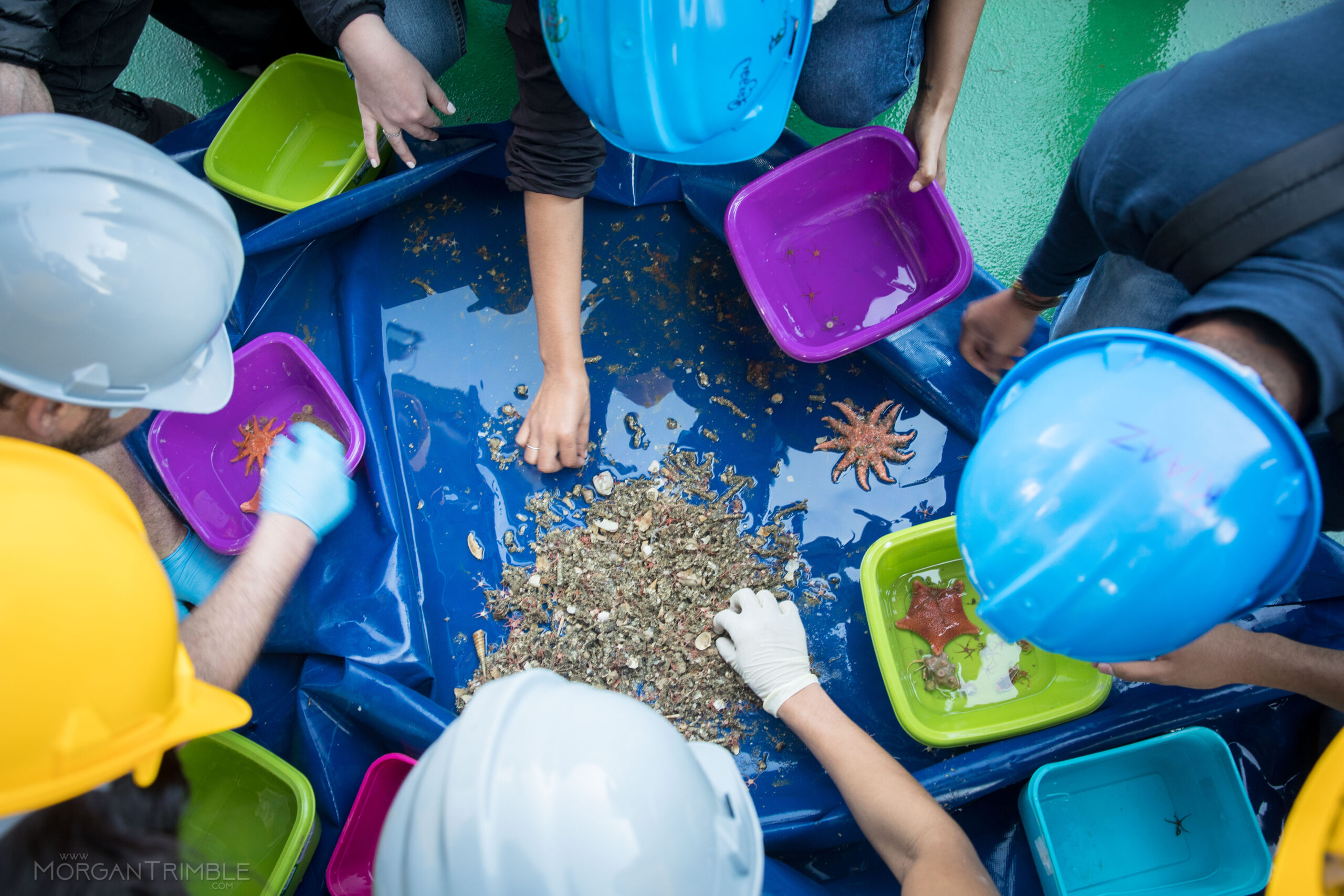Eleonora Puccinelli
Laboratoire des Sciences de l’ Environnement Marin (LEMAR), France
Website; ResearchGate; LEMAR; Twitter
What has been your personal journey into the deep-sea? (Did you always know this is what you wanted to do, or start out on a completely different path?) In other words, what unique journey led you to where you are now?
My journey in the deep-sea actually, did not start from the deep-sea! I started from working on trophic ecology of intertidal areas for my PhD, and when I finished, I wanted to carry on with trophic studies, but extending my knowledge to more inaccessible areas. I had great opportunities to take part in several research cruises, the first to the Southern Ocean Prince Edward Islands and after that along the coast of South Africa. These unique experiences opened my eyes to the beauty of the deep-sea and the need to investigate it more. Five years on and no regrets!

What is your current research question and why are you interested in this topic?
I am mainly interested on food web dynamics of benthic deep-sea communities and on benthic-pelagic coupling. My focus is to understand how different processes affect food web dynamics and possible consequences on ecosystem functioning and associated services. Currently, I am investigating factors that influence the production and transfer of omega-3 fatty acids across trophic levels, focusing on the nitrogen and carbon cycles and on the link between phytoplankton and zooplankton. The scope is to quantify carbon export, and to provide a proxy for the amount of organic matter exported to the deep ocean and thus available to the deep-sea benthos.
What have been some challenges in your work or in studying the deep sea in general? Has your research turned out how you expected?
While I know that I have been very lucky in my career, as I always had a great support from my university and colleagues, my main challenge has generally been having the correct tools to conduct trophic investigations. The discrepancy in resources from different countries and/or laboratories can limit the kind of research you are able to pursue. In the case of trophic studies using a trawl, you can only select the specimens for an investigation once they are on board, and it’s at times challenging to plan an effective study. Nonetheless, the studies I developed were new and unique and the results are mostly better than expected!
Why is this work important to you and society as a whole?
We know so little about the ocean that my main reason to do research is that I always want to know more and to explain how things work. I am fascinated by every small or big discovery and progress we make in trying to understand better the ocean. My research has also broader twofold societal relevance: evaluate long-term effects of climate changes on the trophic dynamics of marine species, especially in relation to omega-3 pathways, and to investigate the role of zooplankton in carbon export to the deep ocean.

Because we are such an international organization, can you describe what the deep-sea science community is like in your region?
When I was based in South Africa the deep sea community was very active but generally small. This had the advantage of easily making connections and developing collaborative projects among researchers, as we knew each other within the deep-sea community. I have now been in France for a year, and here the community is way bigger. There are exceptional facilities and instruments to study the deep-sea, but I am still trying to know well the community just from my city!
What is your current position (student, researcher, government, non-profit etc) and what do you like about your current role in deep-sea science?
I am currently an ISblue Postdoctoral Research Fellow at the Laboratoire des Sciences de l’ Environnement Marin in France. The thing that I probably like the most is the interdisciplinary environment, surrounded by marine scientists specialized in a wide variety of disciplines including biogeochemistry, coastal and deep-sea ecology, modelling or social/economy. This versatile setting is pushing me to develop interdisciplinary collaborative projects to better understand ocean dynamics.

What advice could you offer to aspiring deep-sea biologists?
My main advice is to pursue this career if you are really passionate about it. Working at sea has its beauty, but it can be really challenging, so firstly make sure this is what you want. Secondly, never give up and push forward to meet your goals, even in those (many!) times you feel that you are not good enough. Do not be shy to reach out to other researchers, for advice or collaboration. In the deep-sea no one works alone, we are a team, and it is the team that makes a project successful.
What is the biggest challenge or project you look forward to addressing in the future?
We know so little about the deep-sea that the question is: from which part do we start? I aim to investigate more the benthic-pelagic coupling trophic dynamics, especially from under-studied regions. Within a collaborative framework, involving researchers with different knowledge and expertise, I believe we will able to advance deep-sea research. Additionally, we need to translate our scientific knowledge into a language that is understandable by all, especially policy makers, which is fundamental to proper management of the ocean.
What is your favourite thing about the deep sea?
That we know very little and every time that we go on a cruise we discover new things! When a trawl is on board, I am like a kid in a candy shop, excited for every single thing!

